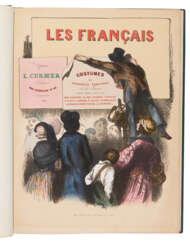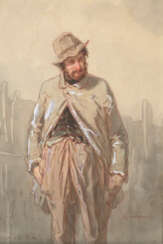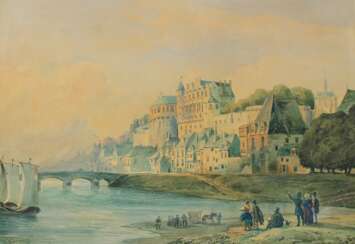поль гаварни (1804 - 1866)
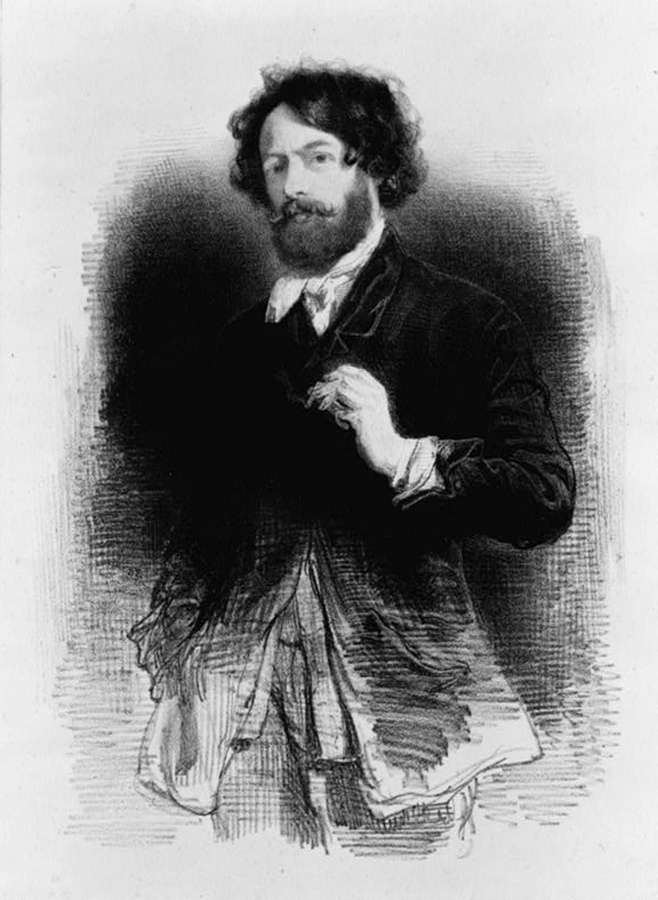
Paul Gavarni, real name Hippolyte Sulpice Guillaume Chevalier, was a French painter, cartoonist, illustrator, and a prominent 19th-century satirist.
Beginning his career as an assistant engineer, he showed signs of his future genius in the late 1820s as a fashion designer and illustrator. His talent for caricature and satirical art, however, led him to the editorship of Les Gens du Monde in 1835. Paul Gavarni, one of the smartest caricaturists, had no equal in drawing, capturing the follies and foibles of his time. He developed close friendships with many other leading artists and contemporary writers, including Honoré Balzac, Charles Dickens and William Maykpis Thackeray. His work was collected by Queen Victoria, as well as by Edgar Degas and Vincent van Gogh.
Gavarnie's long association with the popular magazine Le Charivari, with which Dumier and other cartoonists of the time also collaborated, was the pinnacle of his career. Working continuously from 1838 to 1844, he produced more than 900 engravings illustrating secular Parisian life with great wit, charm, and satire. He also illustrated the novels of Balzac and Eugène Sue and the short stories of Hoffmann. In addition to satirical works, Gavarni also distinguished himself in portraiture and sketches.
But it was not only in social circles that Gavarni revolved, where he was admired. In 1847 he spent a year in London, painting the inhabitants of the poor quarters around Whitechapel and producing some of his best work there.
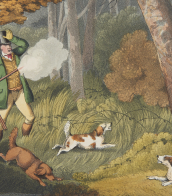

Paul Gavarni, real name Hippolyte Sulpice Guillaume Chevalier, was a French painter, cartoonist, illustrator, and a prominent 19th-century satirist.
Beginning his career as an assistant engineer, he showed signs of his future genius in the late 1820s as a fashion designer and illustrator. His talent for caricature and satirical art, however, led him to the editorship of Les Gens du Monde in 1835. Paul Gavarni, one of the smartest caricaturists, had no equal in drawing, capturing the follies and foibles of his time. He developed close friendships with many other leading artists and contemporary writers, including Honoré Balzac, Charles Dickens and William Maykpis Thackeray. His work was collected by Queen Victoria, as well as by Edgar Degas and Vincent van Gogh.
Gavarnie's long association with the popular magazine Le Charivari, with which Dumier and other cartoonists of the time also collaborated, was the pinnacle of his career. Working continuously from 1838 to 1844, he produced more than 900 engravings illustrating secular Parisian life with great wit, charm, and satire. He also illustrated the novels of Balzac and Eugène Sue and the short stories of Hoffmann. In addition to satirical works, Gavarni also distinguished himself in portraiture and sketches.
But it was not only in social circles that Gavarni revolved, where he was admired. In 1847 he spent a year in London, painting the inhabitants of the poor quarters around Whitechapel and producing some of his best work there.


Paul Gavarni, real name Hippolyte Sulpice Guillaume Chevalier, was a French painter, cartoonist, illustrator, and a prominent 19th-century satirist.
Beginning his career as an assistant engineer, he showed signs of his future genius in the late 1820s as a fashion designer and illustrator. His talent for caricature and satirical art, however, led him to the editorship of Les Gens du Monde in 1835. Paul Gavarni, one of the smartest caricaturists, had no equal in drawing, capturing the follies and foibles of his time. He developed close friendships with many other leading artists and contemporary writers, including Honoré Balzac, Charles Dickens and William Maykpis Thackeray. His work was collected by Queen Victoria, as well as by Edgar Degas and Vincent van Gogh.
Gavarnie's long association with the popular magazine Le Charivari, with which Dumier and other cartoonists of the time also collaborated, was the pinnacle of his career. Working continuously from 1838 to 1844, he produced more than 900 engravings illustrating secular Parisian life with great wit, charm, and satire. He also illustrated the novels of Balzac and Eugène Sue and the short stories of Hoffmann. In addition to satirical works, Gavarni also distinguished himself in portraiture and sketches.
But it was not only in social circles that Gavarni revolved, where he was admired. In 1847 he spent a year in London, painting the inhabitants of the poor quarters around Whitechapel and producing some of his best work there.
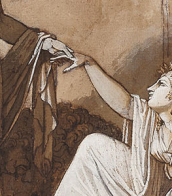

Paul Gavarni, real name Hippolyte Sulpice Guillaume Chevalier, was a French painter, cartoonist, illustrator, and a prominent 19th-century satirist.
Beginning his career as an assistant engineer, he showed signs of his future genius in the late 1820s as a fashion designer and illustrator. His talent for caricature and satirical art, however, led him to the editorship of Les Gens du Monde in 1835. Paul Gavarni, one of the smartest caricaturists, had no equal in drawing, capturing the follies and foibles of his time. He developed close friendships with many other leading artists and contemporary writers, including Honoré Balzac, Charles Dickens and William Maykpis Thackeray. His work was collected by Queen Victoria, as well as by Edgar Degas and Vincent van Gogh.
Gavarnie's long association with the popular magazine Le Charivari, with which Dumier and other cartoonists of the time also collaborated, was the pinnacle of his career. Working continuously from 1838 to 1844, he produced more than 900 engravings illustrating secular Parisian life with great wit, charm, and satire. He also illustrated the novels of Balzac and Eugène Sue and the short stories of Hoffmann. In addition to satirical works, Gavarni also distinguished himself in portraiture and sketches.
But it was not only in social circles that Gavarni revolved, where he was admired. In 1847 he spent a year in London, painting the inhabitants of the poor quarters around Whitechapel and producing some of his best work there.
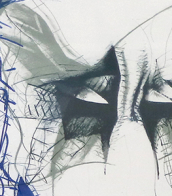

Paul Gavarni, real name Hippolyte Sulpice Guillaume Chevalier, was a French painter, cartoonist, illustrator, and a prominent 19th-century satirist.
Beginning his career as an assistant engineer, he showed signs of his future genius in the late 1820s as a fashion designer and illustrator. His talent for caricature and satirical art, however, led him to the editorship of Les Gens du Monde in 1835. Paul Gavarni, one of the smartest caricaturists, had no equal in drawing, capturing the follies and foibles of his time. He developed close friendships with many other leading artists and contemporary writers, including Honoré Balzac, Charles Dickens and William Maykpis Thackeray. His work was collected by Queen Victoria, as well as by Edgar Degas and Vincent van Gogh.
Gavarnie's long association with the popular magazine Le Charivari, with which Dumier and other cartoonists of the time also collaborated, was the pinnacle of his career. Working continuously from 1838 to 1844, he produced more than 900 engravings illustrating secular Parisian life with great wit, charm, and satire. He also illustrated the novels of Balzac and Eugène Sue and the short stories of Hoffmann. In addition to satirical works, Gavarni also distinguished himself in portraiture and sketches.
But it was not only in social circles that Gavarni revolved, where he was admired. In 1847 he spent a year in London, painting the inhabitants of the poor quarters around Whitechapel and producing some of his best work there.
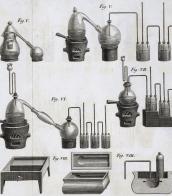
![GAVARNI, Paul [Sulpice Guillaume Chevalier] (1804-1866)](/assets/image/picture_2943066/6bf98/1cf364d2e659d8c816128580534303d11689199200jpg__fix_374_244.jpeg)
![GAVARNI, Paul [Sulpice Guillaume Chevalier] (1804-1866)](https://veryimportantlot.com/assets/image/picture_2943066/6bf98/1cf364d2e659d8c816128580534303d11689199200jpg__fix_374_244.jpeg)
